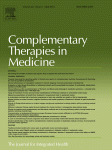- Joined
- Mar 16, 2016
- Messages
- 269
- Reaction score
- 143
I don't know where to put this so I'm putting it here and I trust a mod will move it to a more appropriate location if needed.
I'm a 4th year MD student interested in OMM and wanting to learn more about it. Is it possible for me to learn these techniques and practice them/bill for them? I know very little about it currently but it seems interesting. Thanks
I'm a 4th year MD student interested in OMM and wanting to learn more about it. Is it possible for me to learn these techniques and practice them/bill for them? I know very little about it currently but it seems interesting. Thanks

